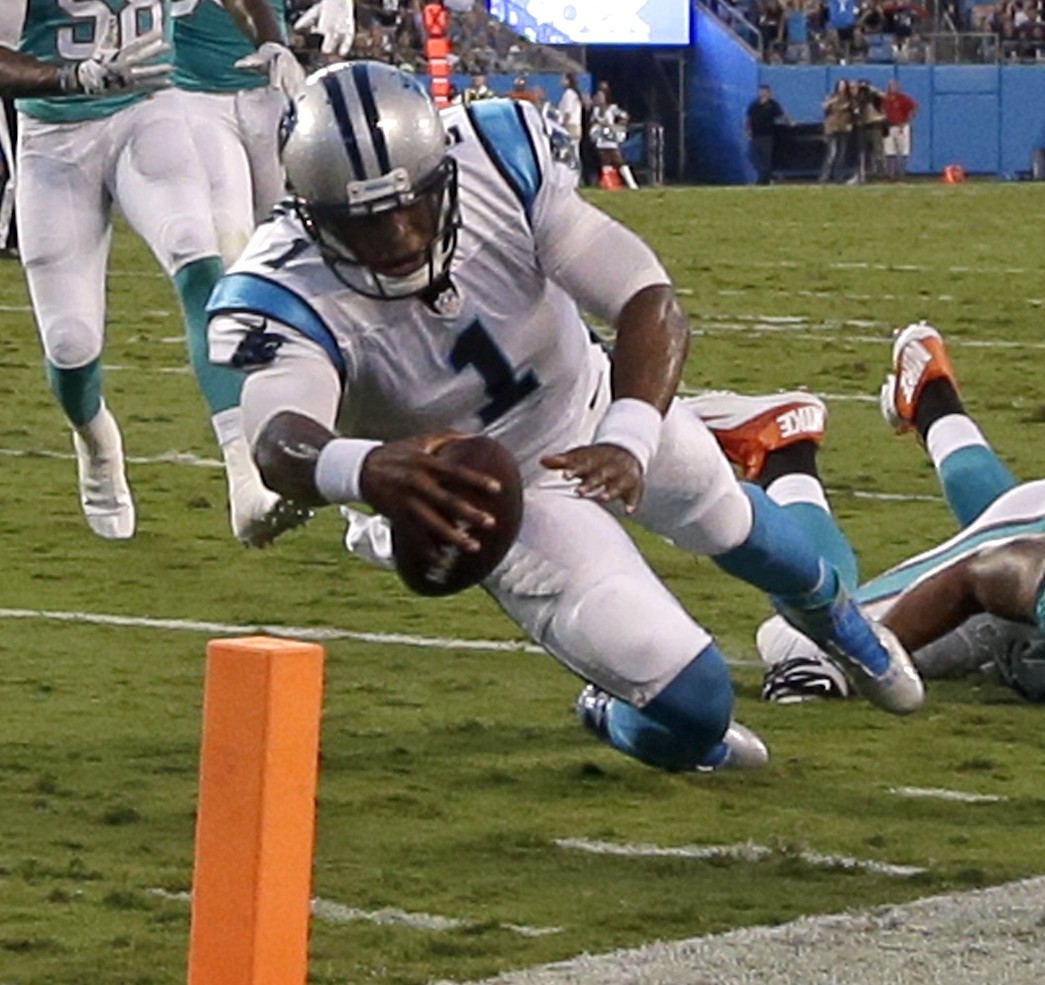(“Today's Crazy Fantasy Stat” is an occasional offseason offering from PFF that highlights something that catches our eye and aids in our preparation for the 2017 fantasy season.)
Cam Newton was the consensus first quarterback off the board in 2016 fantasy drafts. It … didn’t go so well, as Newton finished the year 17th in fantasy points at the position. He saw his passing yards drop by more than 300 from his 2015 season mark, his touchdown passes drop by 16, and his interceptions rise by four.
Newton was a top-four-or-better fantasy quarterback four of his first five seasons before his bad 2016 campaign. Which, of course, means he’s now been a top-four-or-better fantasy quarterback in four of his six seasons in the league. That’s impressive. Only Aaron Rodgers and Drew Brees have been top-four in four of the last six seasons, and it definitely wasn’t the first six seasons for either of them.
A lot changed for Newton in 2016. His average depth of target, which went up a full yard from 2014 (9.9 yards) to 2015 (10.9), climbed again, reaching a career-high 11.0 yards in 2016. He had career-worsts in completion percentage, adjusted completion percentage (correcting for throwaways, drops, etc.), passer rating, PFF overall grade, and other categories.
And yet, even with worse NFL quarterback production, Newton’s fantasy production would have been just fine if he still ran like he did in years past.
In three of Newton’s six years (2011, 2012, and 2015), the Carolina QB has topped 120 fantasy points on rushing alone. In his best rushing season — his 2011 rookie year — Newton had 154.2 fantasy points on the ground. In short, he would have been the No. 21 running back. In his first five seasons, he never dipped below 83.9 yards on the ground.
In 2016, though, Newton ran for only 359 yards and five rushing touchdowns. The former was a career-low by 180 yards; the latter tied his career-low. His yards-per-carry average was a career-best 5.83 in 2012 and has fallen every year since, bottoming out at 3.99 last season.
Just for a little experiment, the chart below shows Newton’s 2016 season, and then his season with a few alterations — subbing out his 2016 rushing numbers for his five-year average entering the season, his 2015 rushing numbers, and then his career-best (2011 season) rushing numbers:
| Cam Newton 2016 fantasy scoring | ||
| Fantasy points | QB rank | |
| Actual 2016 metrics | 254 | 17 |
| w/ 5-year average rushing | 304 | 6 |
| w/ 2015 rushing | 312 | 5 |
| w/ career-best rushing (2011) | 342 | 3 |
Newton’s passing numbers regressed in 2016, but marginally; his rushing fell off a cliff, and as that chart shows, it’s almost the entire difference between his previous, successful seasons and his disappointing 2016.
The question, then, becomes whether the rushing Newton of years past is something we can expect ever again.
Well, every last thing the Panthers have done and said this offseason points to a less-mobile Newton. They drafted Christian McCaffrey and Curtis Samuel, two versatile weapons who can rush the ball or catch passes; both give the team easy ways to avoid putting the increasingly brittle Newton in harm’s way. And they did that, of course, explicitly because they want to have Newton run the ball less. Carolina head coach Ron Rivera said as much in March.
Early fantasy ADP data from Fantasy Football Calculator shows that Newton is still going as a QB1, currently seventh off the board at the position — just after Derek Carr, just before Dak Prescott. But a quarterback who hasn’t topped 4,000 yards since 2011, has only topped 24 passing touchdowns once, isn’t likely to run as much anymore, and has a new cadre of weapons at his disposal is not the No. 7 QB.
Newton has as high a ceiling as any quarterback in the league. But that ceiling isn’t nearly as likely as it was a year ago. Taking Newton as your starting quarterback in fantasy carries plenty of risk. And it’s a frustrating risk — Newton, as long as he’s healthy, is never just going to fall flat on his face. He’s not one of those guys who is injured so often that you feel compelled to draft a backup to sub in. That means that drafting Newton as your fantasy starter is a de facto commitment to using him in that slot for a big chunk of the season. And that’s just too risky for my blood. Take Newton as a high-upside backup if you can get him then, but he doesn’t need to be your fantasy starter.



 © 2025 PFF - all rights reserved.
© 2025 PFF - all rights reserved.